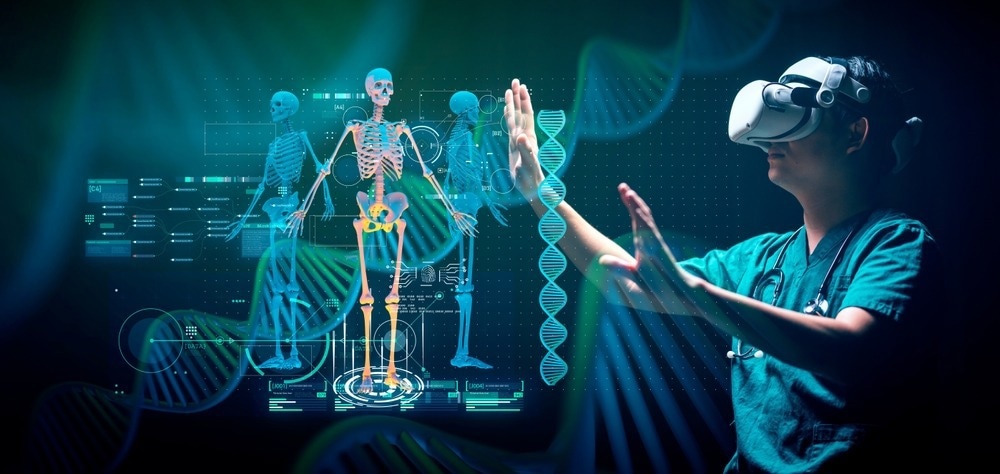
Image Credit: Thinkhubstudio/Shutterstock.com
With the ongoing trend of increased imaging rates and decreased acquisition times, a variety of AI tools can support musculoskeletal radiologists by providing more optimized and efficient workflows.
Ali Guermazi, MD, Ph.D., Professor, Radiology and Medicine, Chobanian & Avedisian School of Medicine, Boston University
According to the researchers, AI has significant promise for more complicated tasks such as disease prognostication and long-term prediction of clinical outcomes, which could boost the utility of imaging and allow the field to move closer to precision medicine.
However, several obstacles must be overcome before AI can be used in therapeutic settings. These include the need for large, high-quality data sets, which is more difficult for uncommon diseases like musculoskeletal tumors, among others.
They note that multi-institutional collaboration will be required for the compilation of such data sets, but this has its own set of difficulties, such as discrepancies in imaging procedures.
“For AI to be the solution, the wide implementation of AI-supported data acquisition methods in clinical practice requires establishing trusted and reliable results. This implementation will require close collaboration between core AI researchers and clinical radiologists,” Guermazi concluded.
After being successfully implemented in clinical settings, a broad range of AI-based solutions can enhance the workflow of musculoskeletal radiologists. If effectively incorporated into the routine practice of musculoskeletal radiology, other AI applications might potentially be beneficial for business, education, and research.
Guermazi ensures that AI will not replace radiologists, but rather that all radiologists will employ AI in the future.
Journal Reference:
Guermazi, A., et. al. (2023) How AI May Transform Musculoskeletal Imaging. Radiology. doi:10.1148/radiol.230764.